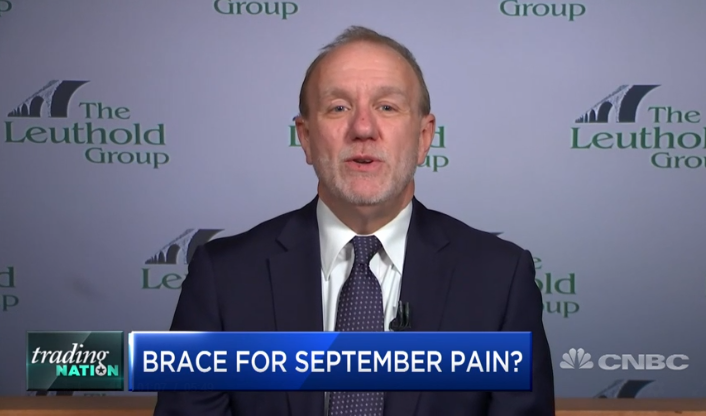September is generally the worst month of the year for stock markets, and a particularly bad August mixed with projections of a slowing economy has a lot of investors spooked already.
But market perma-bull Jim Paulsen, the chief investment officer of the Leuthold Group, thinks the markets are maneuvering for a bull run heading into the holiday shopping season and the end of 2019.
“We almost have a fear bubble. That’s our primary thing that sits out there for me,” Paulsen sad in an interview on CNBC’s “Trading Nation” at the end of last week. “People are not loading into stocks even though we’re really close to market highs. They’re loading into bonds even though they have close to record low yields. The behavior just screams fear.”
August ended as just the second losing month of the year on Wall Street, with the Dow and S&P 500 finishing down about 2%, and the Nasdaq down 3%.
Paulsen correctly said the markets would rebound from last December’s Christmas bloodbath, and he was right as August’s swoon followed the month of July’s all-time record highs.
Paulsen said incoming reports of a strong economy should assuage investors’ fear, leading to new record highs.
“I think the odds favor all of the policy stimulus we’ve introduced: fiscal stimulus, policy stimulus, monetary growth, lower yields,” he added. “It’s been about six to nine months lag time, and I think it’s going to start to improve economic reports.
“If you pierce a fear bubble, do you have a big rally? And, I kind of think that’s one of the contributing factors to the upside. If we find out it turns out better than feared, many, many portfolios are under allocated to risk assets and will have to re-adjust themselves trying to get more risk which could drive risk assets a lot higher.”
However, Paulsen did acknowledge that the current record long streak of growth is on its last legs.
“We’ve grown slowly close to the 2% stall speed we used to worry about the entire recovery. We’re at full employment with 4% unemployment,” Paulsen said. “We’re in the longest recovery ever now in U.S. history. So there are certainly characteristics of being near the end. But character wise, I just don’t see the overextended nature mainly because we’ve been so conservative.”
